Why Did Buddha Deny God? Supporting Arguments from Books
Buddhism differs from other religions in its core beliefs, one of which is the absence of a belief in a creator god. Instead, followers of Buddhism believe that enlightenment can be attained by individuals, as exemplified by the historical Buddha.
In this post, I will support my argument of why Buddha denied God in the first place with some primary and secondary sources.
Let’s dive right in:
Why Did Buddha Deny God?
Let me clear some confusion first regarding the matter of proving the Buddha being a denier of God. First things first, it’s not a matter of not tolerating Buddhism or anything else. Secondly, it isn’t a matter of forcing people to believe in the fact that Buddha was a God Denier.
I am just explaining this matter in terms of its literary definition, the theological, and the metaphysical distinctions. That’s enough clarity from my side I guess!
Coming right to the point, I must first say that Buddha was both an Atheist as well as an Anti-Theist.
Buddha, being an Atheist is pretty much understandable since he was the denier of one single entity controlling all the things in the universe, a.k.a God.
Secondly, even if we say that Buddha knew such an entity in the form of a God did exist, he purposefully denied it thus becoming an Antitheist for sure. The founder of Buddhism simply dismissed the idea of believing in God terming it as something delusional and far away from reality.
In his book, Buddhism and the God Idea, Nyanaponika Thera says and I quote this directly from the book, “From what I have studied in the discourses of Buddha preserved in Pali Canon, it is seen that the idea of Personal Deity or a Creator God being omnipotent and controller of the universe is not compatible with Buddha’s teachings. On the other hand, conceptions of an impersonal godhead of any description, such as world-soul, etc., are excluded by the Buddha’s teachings on Anatta, non-self, or unsubstantiality. In Buddhist literature, the belief in a creator God (issara-nimmana-vada) is frequently mentioned and rejected, along with other causes wrongly adduced to explain the origin of the world.”
Source: Buddhism and the God Idea
Proof from Confession of Buddhist Atheist
Stephen Batchelor in his book Confession of Buddhist Atheist has the same insights on why Buddha denied God in the first place. An excerpt from the book says that,
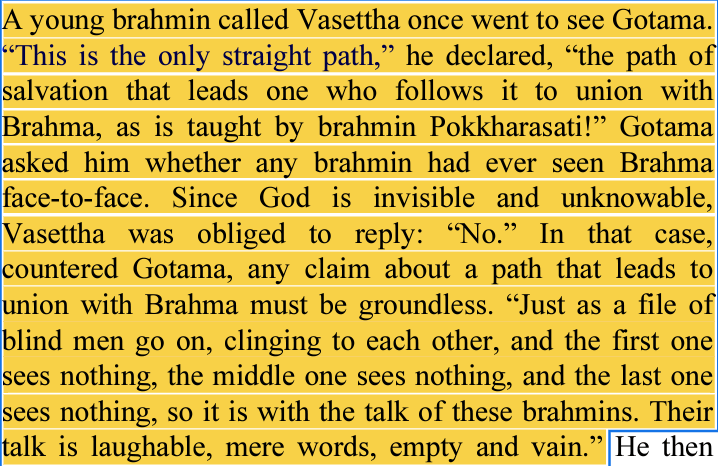
Source: Confession of a Buddhist Atheist, Page 251
Stephen further continues with the following:
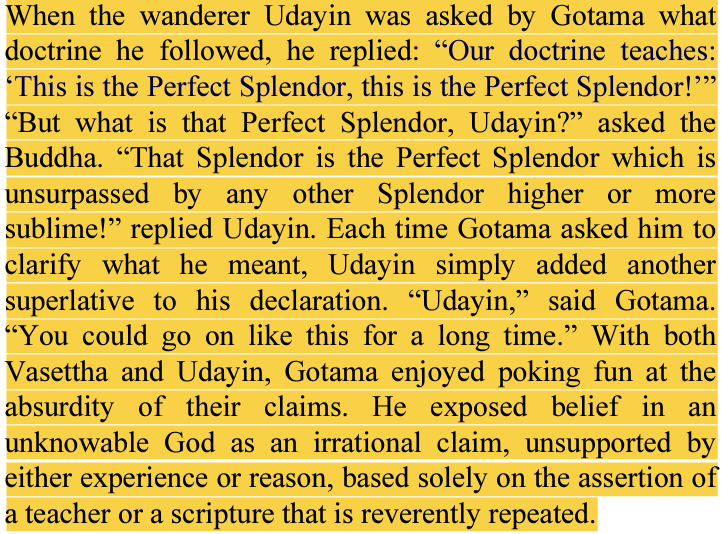
Source: Confession of a Buddhist Atheist, Page 252
Both these excerpts show that the concept of believing in God is considered irrational, delusional, and unsupported by an experience or a reason.
Proof of Buddha Denying God in Kevatta Sutta
Translated from the Pali language by Thanissaro Bhikkhu, look what Buddha narrates about himself in Kevatta Sutta:

Source: Kevatta Sutta
Further in the book, it is said that


Source: Kevatta Sutta
From the discourse that we have studied up till now, it is clear that the Blessed One explains why it is not a rational idea to go to God to find the answers to existence and other metaphysical questions. The Blessed One also mocks Brahma and shows his superior knowledge over God thus showing his atheistic and antitheist beliefs.
Proof from Brahma Nimantanika
Similarly, Buddha also denies the existence of God and rejects the idea of believing in an omnipotent entity in the Brahma Nimantanika.
The introductory paragraph from the Translator, i.e. Thanissaro Bhikkhu says that

Source: Brahma Nimantanika, Introduction
Continuing, the Buddha also narrates:

Source: Brahma Nimantanika
From the text mentioned above, it is clear that the Three Marks of Existence directly contradict the presence of God in the sense that God is eternal, permanent, has a self, and does not suffer.
So, if one believes in God, he is certainly denying the existential tenets of Buddhism that were preached by Buddha to his disciples.
To Conclude
To conclude the argument once and for all, it is pretty much clear that Buddhism is certainly not compatible with the existence of God. Putting it simply, when you cannot expect a Muslim to be an Atheist at any cost, you cannot call yourself a Buddhist and a Theist at the same time. For you to completely become a Buddhist, you should know that it does not believe in Theism at any cost.
I would also like to spread light on the remarks of Stephen Batchelor as he says in one of his interviews, “There are a few passages that I cite in my book, Confession of a Buddhist Atheist where the Buddha addresses the important question of Theism and Atheism. He takes a stance on it which makes him somewhat of an Ironic Atheist as he treats the idea of believing in God as some kind of ironic amusement. He is not serious while talking about the idea and once he addresses them in short passages, he puts them aside without discussing them again.”
Source: Atheists vs Theists: Does Buddha Offer a Middle Way?
Frequently Asked Questions about Buddhism and Its Relationwith God
Here are answers to some other questions that you may have regarding Buddhism,
01. Is Buddhism Godless?
As a religion, Buddhiusm doesn’t have a creator God.
However, it does acknowledge the existence of devas (gods) and bodhisattvas. Devas and bodhisattvas are not creator gods either.
The Buddha was born a prince. He lived a really good life, but he decided to leave his palace and family behind to find out what was causing people to suffer.
As soon as he learned the truth, he began teaching it to others. He never claimed to be a god. He was just a man who wanted to help other people.
Buddhism is a religion that you practice to become a better person. It is not about believing in any god, it is about believing in yourself and practicing to become a better person.
The only thing that really matters here is to practice to become a better person.
There are many religions that don’t believe in a creator god, and the word ‘nontheism’ is used to describe them. Religions such as Buddhism, Hinduism, Jainism, progressivism belong to this category.
On the other hand, agnosticism is the belief that it is impossible to know for sure if there is a god or not.
Also, note that Agnosticism is different from atheism. Atheism is the belief that there is no god. Agnosticism is the belief that you can’t know for sure if there is a god or not.
In his teachings, the Buddha did not talk about God specifically.
Buddhism teaches that we should not worry about whether or not there is a god. We should worry about what we do with our lives and how we live our lives.
02. Who Is the Buddhist God?
Buddhism is a religion that does not attach importance to a divine creator, i.e. it isn’t theistic. Buddhists believe in karma which is a cycle of cause and effect.
Buddhism is actually a philosophy and a way of life. It comes from Nepal and it was started by a man named Siddhartha Gautama. He was later called “Buddha” by his followers.
Buddha is an extraordinary man, but he is not a god.
“Buddha” means “awake.” He experienced nirvana. When you reach enlightenment, you are said to have experienced nirvana. He was a teacher. He taught gods and humans (Satthadeva-Manussanam).
Buddhism does not include the belief in a creator deity. Buddhists believe that there are many gods, but they are not creators.
This is mainly because Buddhists believe that nothing is permanent and that everything can change.
03. What Is Buddhism God’s Name?
When you enter a Buddhist monastery, you may see a lot of Buddhas and other religious figures. They look different and they may be painted in different colors.
Buddhism does have gods and other divine beings. It also has heavens and rebirths. People who follow Buddhism believe that after you die, you will be reborn again.
The Mahayana Buddhist tradition speaks of many Buddhas who lived in the past and will live in the future. Some of them are very powerful. They are like gods. Some of these gods have their heavenly world.
In Tibetan Buddhism, there are eight major bodhisattvas. They are Avalokitesvara, Ksitigarbha, Vajrapani, Akasagarbha, Sarvanivāraṇaviṣkambhin, Samantabhadra, Manjushri and Maitreya.
There are also female bodhisattvas e.g., White Tara, Khadiravani Tara, Vasudhara, Sarasvati, and Cundi.
Tibetan Buddhists believe that these bodhisattvas are reborn in human form. For example, they believe the Dalai Lama is the living embodiment of compassion, the reincarnation of the bodhisattva Chenrezig.
As I mentioned earlier, the Buddha was born into a royal family. His father was the king of the Shakyas. Shakyamuni means “sage of the Shakya clan”. Shakyamuni is also believed to have been a bodhisattva who lived in Tushita heaven.
Read More: Buddha Incense Burner Holders
04. How Many Buddhist Gods Are There?
There are many god-like beings in Buddhism. Buddhism does not equate them to gods in the way that is commonly believed.
In Buddhism, deities are referred to as devas or devatās. Gods and goddesses and other supernatural beings and creatures live in a different place than us.
27 different svargas/heavens contain the gods, and there are many gods.
Also, there may be differences in the number of devas and their names depending on the Buddhist tradition, such as Theravada, Mahayana, or Tibetan.
05. Why Does Buddhism Have So Many Gods?
The beings in the universe are reborn over and over again. They are reborn as gods, demigods, humans, animals, ghosts etc.
They are reborn in six different places. These six places are called ‘gati’ (realms or domains of existence). Their actions determine their rebirth.
The existence of rebirth is most likely the reason for the existence of so many worlds and gods and demigods.
Buddhism teaches that all living things are trapped in a cycle of death and rebirth. This cycle is called samsara.
Here, the goal of Buddhism is to escape this cycle of death and rebirth.
06. What Is the Difference Between a Buddha and a God?
The simplest answer is that the Buddha is a spiritual teacher and God is a creator deity.
Gods and Buddha are not the same and should not be confused.
Buddha means that one is awake from ignorance, while a god is a superior being.
A god (deity) is someone who is worshiped by many people. There are many gods in various religions.
A Buddha recognizes suffering, sees the cause of suffering, understands suffering, ends suffering, and leads others to the end of suffering.
A Buddha has the compassion to teach others the path to the cessation of suffering.
There are three types of Buddhas mentioned in Buddhist texts. The followers of Buddhism look up to the Buddhas to show them the path to enlightenment.
The three categories are Pacceka Buddha or Protteka Buddha, Savaka Buddha or Śrāvaka Buddha and Samma Sambuddha or Sammaka Sambuddha.
Read my blog post regarding Buddha types for more information:
How Many Types of Buddhas Are There?
According to Buddhism, everyone is capable of becoming a Buddha. While the Buddhas are the highest beings, they are not gods.
A god is defined as a supernatural or celestial being, while buddhas are human beings who have reached the highest level of enlightenment.
07. Did Buddha Claim to Be God?
No, the Buddha didn’t claim to be a god. Buddha never said that he was a god or a messenger from God. In fact, he encouraged people to discover the truth through their own efforts.
He was a human being who tried to discover the truth about life and existence.
As a human, he died like every other human, but he claimed that he was enlightened or awakened. He claimed that others could be awakened as well.
08. Is Buddha a Creator God?
No, The Buddha is not a creator God. The Buddha is a man who discovered the way to overcome suffering (dukkha).
09. Why Is Buddha Not a God?
A god is a supernatural figure of worship. Buddha is not a god because he is not supernatural. He is human like us.
Buddha never claimed to be a god or a messiah. He lived the life of a saintly man, seeking enlightenment for the benefit of all sentient beings.
Buddha’s teachings say that he was a human being who attained nirvana and taught others how to do the same.
He became a perfect being. To be a perfect being is to be free from all kinds of delusions and to be free from all kinds of attachments.
A Buddha is a human being who has attained Perfect Enlightenment, and that is a state of being that a human being can achieve, not a state that a person is born into.
So, a Buddha cannot be a god, because a Buddha is a human being.
What a Buddha is, is a human being who has ended the cycle of birth and death, and is thus beyond the reach of the problems and difficulties that most of us face.
He lived an ordinary life—a prince, married, had children, and succeeded—and he had an extraordinary experience of ‘enlightenment’.
He had the insight to see the true nature of reality and became awakened. He had the courage to act on his insight and become a great teacher. And he had the compassion to help others awaken.
Explore Most Famous Statues of Buddha
10. Did Buddha Ever Talk About God?
The idea of god has been a constant source of debate and conflict throughout the world. Many religions and cultures believe in a creator, however, the concept of god is not a universal concept.
There are many different views and opinions on the subject of god, and the Buddha’s view on this subject was not to accept or reject the idea of god.
Many people believe that Buddhism is an atheist religion. This is not so. Buddhism does not specifically negate gods, but rather the ‘God’ of theistic religions.
11. What Did Gautama Buddha Say About God?
Although he never directly stated anything about belief in god, the Agganna Sutta does imply that Gautama Buddha rejected the idea of a creator God.
Buddha did talk about many gods and other religious deities, but he did not mention anything about the creator God. Instead he talked about celestial beings like devas and demons.
He taught about the heavens and even gave names to these places. The Buddha did not believe in a creator God.
In a sense, he could be described as being agnostic; he did not accept or reject the idea of god. He did not think that God or gods can interfere with the universe or human affairs.
12. Does Buddhism Deny God?
Buddhism does not deny the existence of god. But the Buddha has rejected belief in god as a necessary religion.
The Buddha has rejected god as a creator of the universe, ruler of the universe, or any other role that would place god beyond the scope of the natural world.
Buddhism is not centered on the existence of god, the existence of godlike beings, or on the concept of god.
The Buddha did not teach about the existence or the non-existence of god, rather, he taught about the way to freedom from suffering.
This religion does not ask people to dedicate themselves to a greater being. For Buddhists, there is no need to worship gods.
13. Why did the Buddha Reject God?
People have been wondering for a long time if Siddhartha Gautama was an atheist. His Agganna Sutta expresses his distaste for the idea of a creator god.
He was a man who was very interested in figuring out what life was all about. He looked at many different ideas and religions and tried many different things to try to figure out what really was true.
At one point he decided to try to find the answer by meditating and not eating anything for a long time.
He did this because he thought that maybe if he could find the answer, he could become “enlightened” and his questions would be answered. But he didn’t become enlightened.
He became very sick and almost died.
He tried being a monk, he tried being a hermit, and he tried being a wandering teacher. He thought if he found the right way to live, he would be happy and not suffer any more. But he still suffered.
He still had problems and he still felt unhappy. Finally, after many years of searching, he became enlightened. He was sitting under a tree and he found the right way to live. He found the way to end suffering.
He found spiritual liberation by rejecting the concept of god, and instead focusing on the human potential for spiritual growth.
The concept of a god with a human-like consciousness does not align with the Buddha’s understanding of the nature of reality.
Buddha rejected the idea of god because he found spiritual liberation within himself, instead of looking for it outside. He believed that people had to take responsibility for their own spiritual destiny.
Essentially, his view of a creator god was simply another term for eternal soul, which then runs counter to the notion of Anattā, one of Buddhism’s fundamental concepts.
Below is a simplified version of anatta based on extensive research in case you want to know more:
Anattā (The Easy-to-Read Version)
14. Why Did Buddha Reject the Vedas?
Buddha rejected the Hindu caste system and the ritual sacrifices to gods and goddesses that the Brahmins practiced. He rejected the belief that the world was created and destroyed periodically.
Buddha was a rationalist. Buddha rejected the plethora of Hindu deities that were bestowed with supreme powers.
He rejected the social system which divided society into four classes – Brahmin, Kshatriya, Vaishya, and Shudra – based on their birth.
The caste system gave the Brahmins the privilege of being the highest caste and being the priests and teachers of religion and philosophy.
Brahmins were supposed to be the only ones capable of practicing religion and philosophy.
The Buddha believed that all living things were equal and should live life to the full. He felt that everyone was capable of awakening and living a happy and content life.
His rejection of the Hindu caste system was not an easy one. The caste system was a strong part of the Hindu belief system and most people were determined to keep it in place. It was a way of life and a means of social control.
The Buddha realized that belief in a creator god was not necessary to have a religion. He denied the Hindu belief in a creator god and the Hindu concept of Brahman which was the supreme being.
15. Why Does Buddhism Have No God?
As previously discussed, Buddhism does not hold any belief in a creator God but rather believes in other god-like creatures.
To be more precise, Buddhism does not have a creator god since Buddha does not mention such a god in his teachings.
Although the idea of a creator is appealing, Buddhism teaches that we can’t accept such assumptions and should stand up to what we see and experience instead of operating on faith.
The closest images of a god-like being in Buddhism are Buddhas and bodhisattvas.
A Buddha is a being who has become fully awake to the world and understands how it works.
A bodhisattva is a being who has reached a level of spiritual development but has chosen to remain in a human or animal form to help others reach enlightenment.
Unlike a god, it is not the role of a Buddha or bodhisattva to create the universe.
16. Why Don’t Buddhists Believe in God?
Buddhists are those who follow the teachings of the Buddha. The Buddha didn’t teach his followers the traditional ideas about God like his contemporaries the Hindu Brahmins did.
Buddhists believe that it is possible to be freed from the cycle of rebirth by reaching Nirvana. This is not god-like power because it is the individual who has the power to go beyond the cycle of birth and death.
That is why Buddhists don’t have to believe in an omnipotent God to achieve the highest state of being.
17. Is Buddha Revered as a God?
No, Buddhists don’t revere the Buddha as a god. The Buddhists revere the Buddha as the “enlightened one”, not as a supreme creator “deity”.
The Buddha himself refutes any claims of being a god. He is viewed as a teacher or guru, who has reached the highest level of wisdom.
18. Did Buddha Declare Himself God?
No, the Buddha did not proclaim himself God. In Buddhism, a Buddha is a human being who has totally overcome greed, hatred, and delusion and has thus attained Nirvana.
He was a teacher and a philosopher. He was not worshiped as a god.
Parting Words:
Buddhism, as a religion is peaceful, not pessimistic, helps in spiritual healing, and teaches us to be more balanced, empathetic, and have friendly behavior with others.
However, it is also a fact that Buddhism does not believe in the existence of God as I have already given ample arguments on this point above.
So, make sure that you read these arguments before becoming a devoted Buddhist to ensure a mindset that is not bothered by the idea of rejection of God.

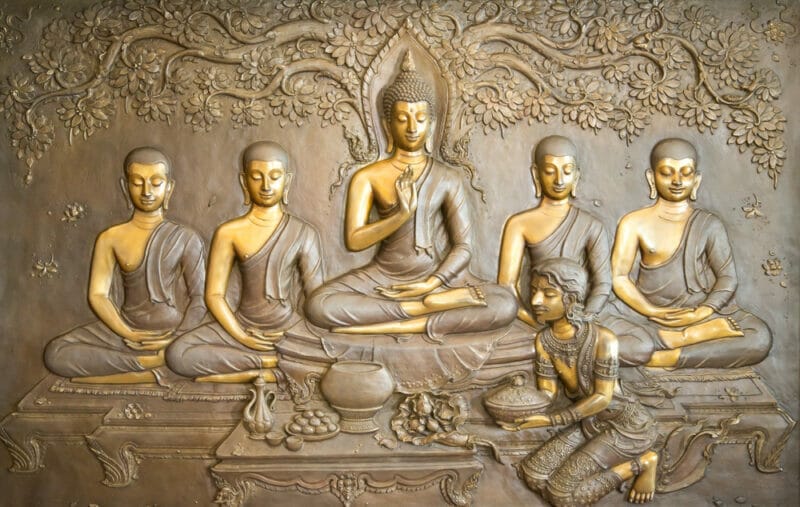

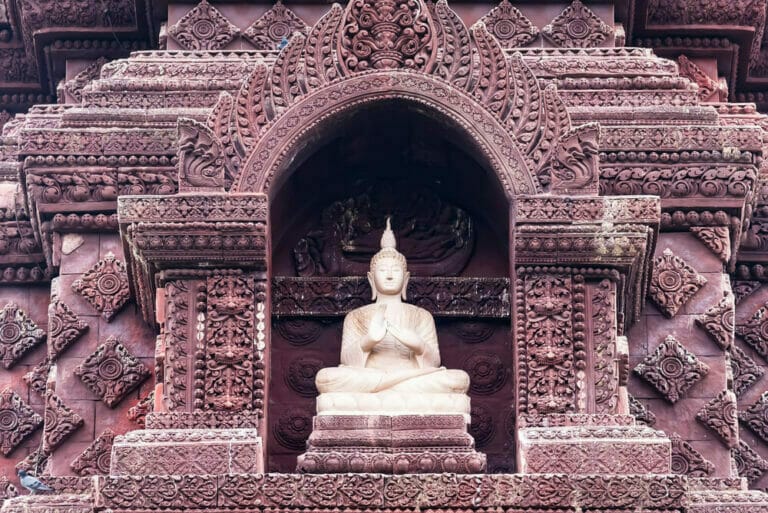


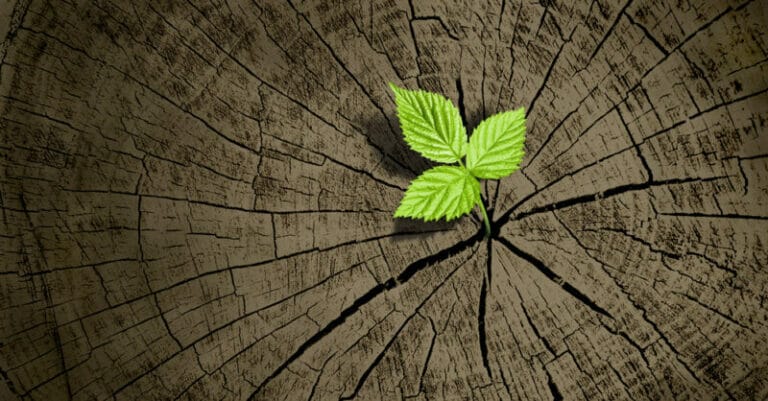
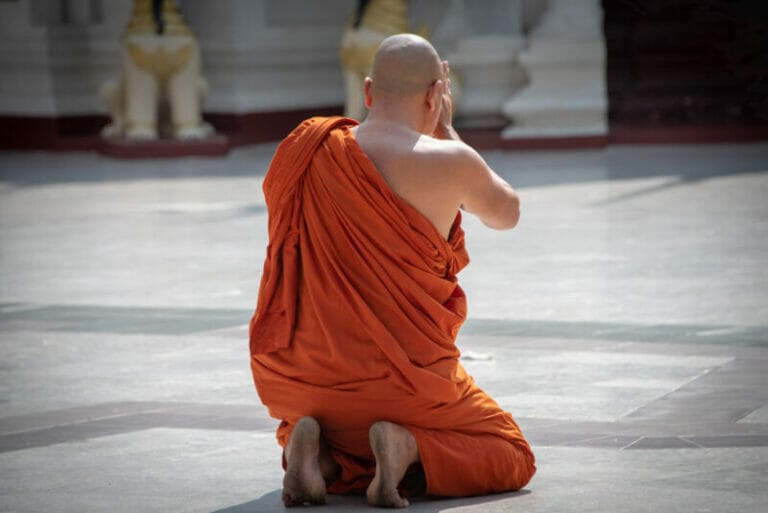
Buddhism has been frought with a lot of argument both within it’s ranks and from others from the Buddha’s rejection of a “Creator” God. For the Buddha, everything simply rolled out of action-reaction, which is the concept of karma. How the Reality began, is a real problem for this philosophy and as a religion it fails to satisfy people. The result is that like the Tibetan Version of Buddhism, a lot of Gods spring into being to satisfy this need that we are part of a supra-cosmic family. When you look up the description of the Dharmakaya in Buddhism, you get something almost identical to Hindusims Brahman…which in itself is a creator of Gods and everything else. The Dharmakaya is the Brahman of Buddhism as the Ain Sohp Aur is the God before God of the Jewish Kabbalah. Enlightenment is the fusion of the individual with the Dharmakaya, which is no different than the fusion of the Mind with God in Hinduism or even Christianity, except that Christians bring in the idea that God walked the Earth as His own Son. The Dharmakaya, The Brahman, the Ain Soph Aur; are essentialy all the same concept and thus hit on an ancient Truth. There IS a source to everything that exists, but it is not a personal, seperate God, but that which allows for Gods and others to proliferate throughout the Realities cycles of existence. We can put our faith, in that. To realize the Dharmakay itself, or the Brahman, or the Ain Soph Aur, would be to lose your individual existence. This is possible, without dying but it would be a very profound experience. This is the experience Siddhartha, the Buddha had under the Bodhi Tree. If He did it, so can we.
Hi Richard, your input is greatly appreciated. The type of comment you provided might be helpful to other readers who wish to examine the topic from a different perspective. Thank you, in that regard. Enjoy your day!